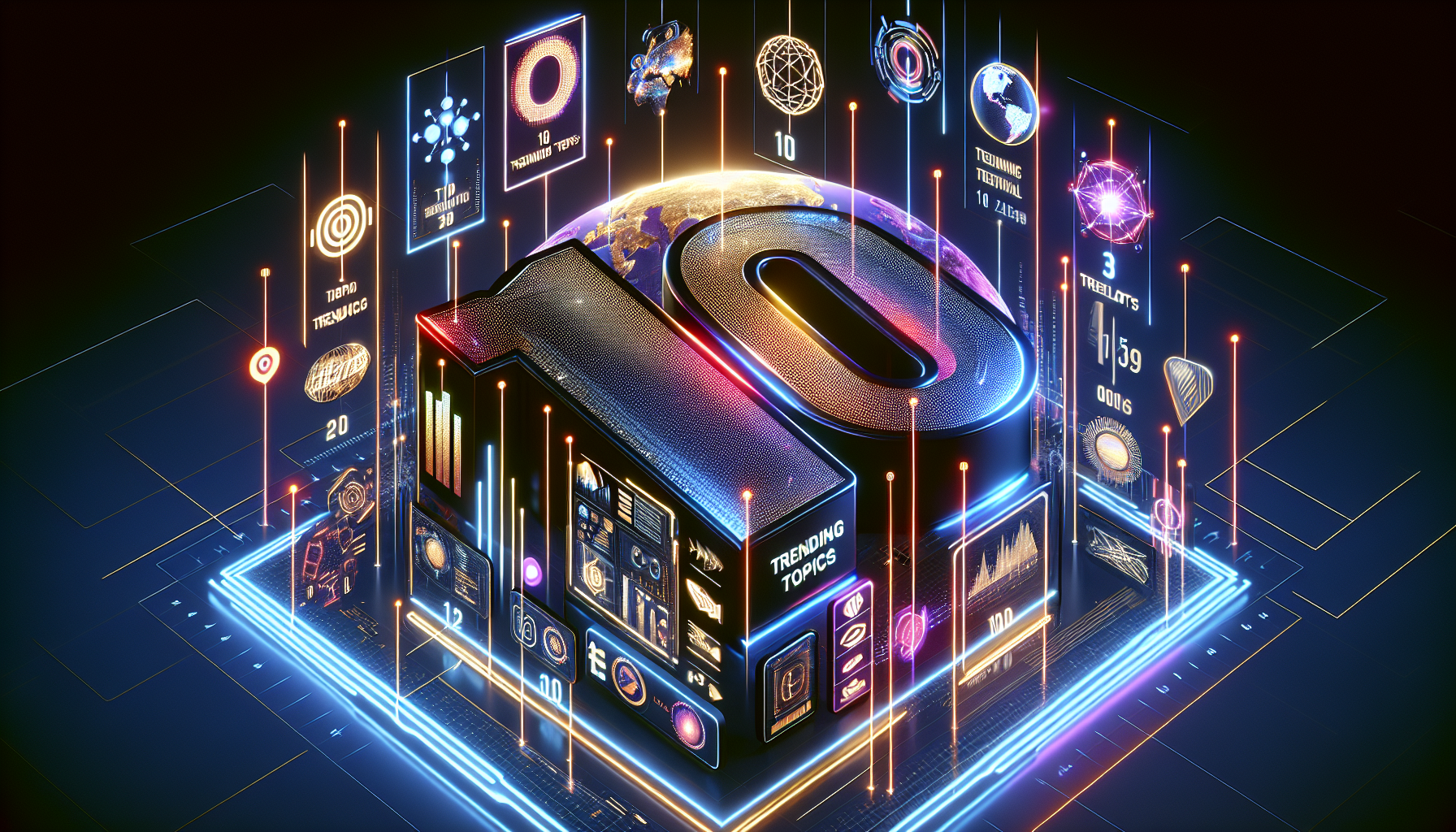1. The Rise of Quantum Computing
Understanding Quantum Computing
Quantum computing is no longer a concept confined to theoretical discussions; it has become a reality with practical applications. While classical computers use bits as the smallest unit of data, quantum computers utilize qubits, allowing them to perform complex calculations much faster. In 2025, advancements in quantum algorithms are expected to solve problems beyond the reach of traditional computing.
Real-World Applications
Industries such as pharmaceuticals, finance, and logistics are starting to leverage quantum computing for drug discovery, risk analysis, and optimization problems. Organizations are investing heavily in quantum technologies, leading to new innovations that will redefine various sectors.
2. The Expanding Metaverse
What is the Metaverse?
The Metaverse is an immersive virtual environment where people can interact, work, and play. In 2025, the concept has evolved from gaming towards a broader societal application, merging augmented reality (AR) and virtual reality (VR) experiences.
Key Players and Innovations
Major tech players like Facebook (Meta), Google, and Apple are heavily investing in creating their versions of the Metaverse. Enhanced AR and VR technologies enable seamless interactions, creating opportunities for virtual workplaces and social communities, fundamentally changing how we connect and collaborate.
3. Sustainable Energy Solutions
The Shift to Renewable Energy
As climate change continues to be an urgent matter, 2025 has seen a marked increase in investment towards sustainable energy solutions. Solar, wind, and hydrogen technologies are leading the charge as they become more affordable and efficient.
Innovations in Energy Storage
One of the most pressing challenges for renewable energy has been storage. Breakthroughs in battery technology, including solid-state batteries and AI-enhanced energy management systems, have revolutionized how energy is stored and utilized, ensuring sustainability.
4. The Evolution of AI Ethics
Defining AI Ethics
As artificial intelligence technologies permeate everyday life, the discourse surrounding AI ethics has gained momentum. By 2025, discussions regarding bias, privacy, and accountability in AI decision-making have become more pronounced and necessary.
Policies and Regulation
Governments and corporations are beginning to create policies to guide ethical AI development. Companies are adopting frameworks to ensure their AI systems are transparent, fair, and serve the greater good, thus fostering public trust in these technologies.
5. Advances in Personalized Medicine
What is Personalized Medicine?
Personalized medicine, also known as precision medicine, tailor healthcare treatments to individual patients based on genetic information. By 2025, this approach has transformed the healthcare landscape, leading to more effective treatments and improved patient outcomes.
Genomic Testing and Data Usage
With advancements in genomic testing, healthcare providers are now able to identify unique biological markers and customize treatments accordingly. The integration of AI into healthcare systems aids in analyzing patient data and improving clinical decision-making, marking a significant leap forward.
6. Space Exploration and Commercialization
Private Companies Entering Space
Space exploration has become more accessible, with private companies like SpaceX, Blue Origin, and others leading the way. By 2025, commercial space travel is anticipated to be a thriving industry, turning what once seemed like science fiction into a viable option for tourists and researchers.
Mission to Mars
NASA and international space agencies are planning crewed missions to Mars, laying the groundwork for potential colonization. The advancements in rocket technology and life-support systems have made these ambitious plans closer to reality.
7. The Impact of 5G and Beyond
What is 5G?
5G technology has transformed how we connect to the internet, promising significantly faster speeds, lower latency, and higher network capacity. By 2025, the adoption of 5G is widespread, enhancing mobile connectivity and the Internet of Things (IoT).
Implications for Businesses and Consumers
With widespread 5G adoption, businesses are leveraging faster networks for better customer experiences. Consumers enjoy seamless streaming, smart home devices, and enhanced AR applications, thanks to the unprecedented speed and reliability that 5G offers.
8. The Future of Work
Remote Work Trends
The workplace landscape has underwent a seismic shift, as remote work proves to be more than just a temporary adjustment. By 2025, hybrid working models are widely accepted among companies, blending remote and in-office work seamlessly.
Emphasis on Employee Well-Being
In response to the changing work environment, organizations are increasingly focusing on employee well-being. Mental health resources, flexible schedules, and meaningful employee engagement initiatives are becoming standard practices as companies recognize the importance of maintaining a supportive work culture.
9. The Digital Transformation of Education
Online Learning Growth
The educational landscape is changing dramatically with the proliferation of online learning platforms. By 2025, both K-12 schools and higher education institutions have embraced digital learning as a central component of the educational experience.
Technological Integration
EdTech innovations, including AI-driven personalized learning tools, virtual classrooms, and adaptive learning platforms, are helping educators tailor their teaching methods, making education more accessible and engaging for students.
10. Mental Health Awareness and Resources
The Increasing Importance of Mental Health
2025 sees a significant increase in awareness and conversations regarding mental health. The stigma surrounding mental health issues is gradually dissipating, leading to more people seeking help and support.
Advancements in Mental Health Resources
With the rise of teletherapy and mental health apps, people now have easier access to mental health resources. Additionally, workplaces are implementing mental health programs to support their employees, emphasizing the need for emotional well-being in the modern world.
